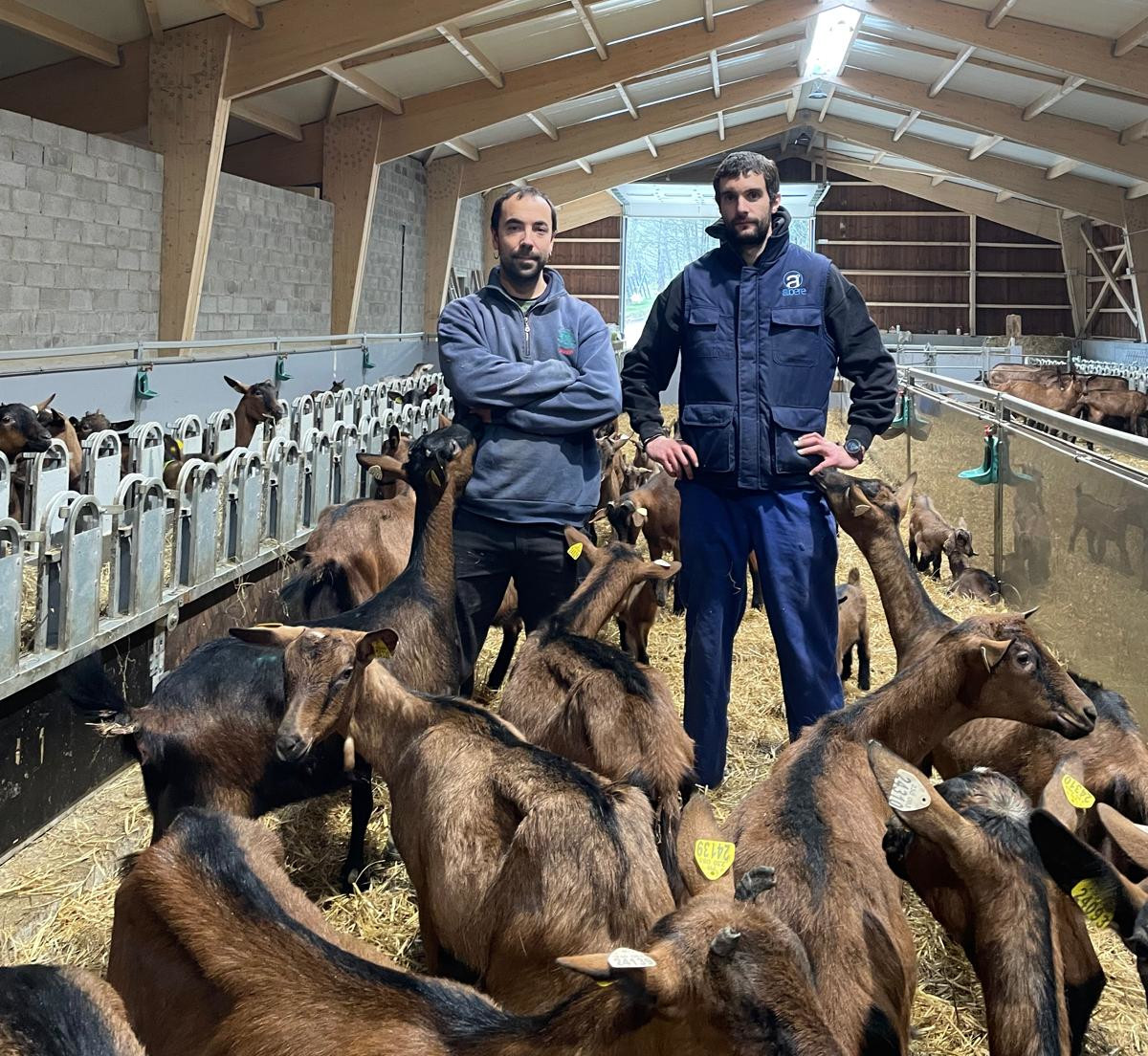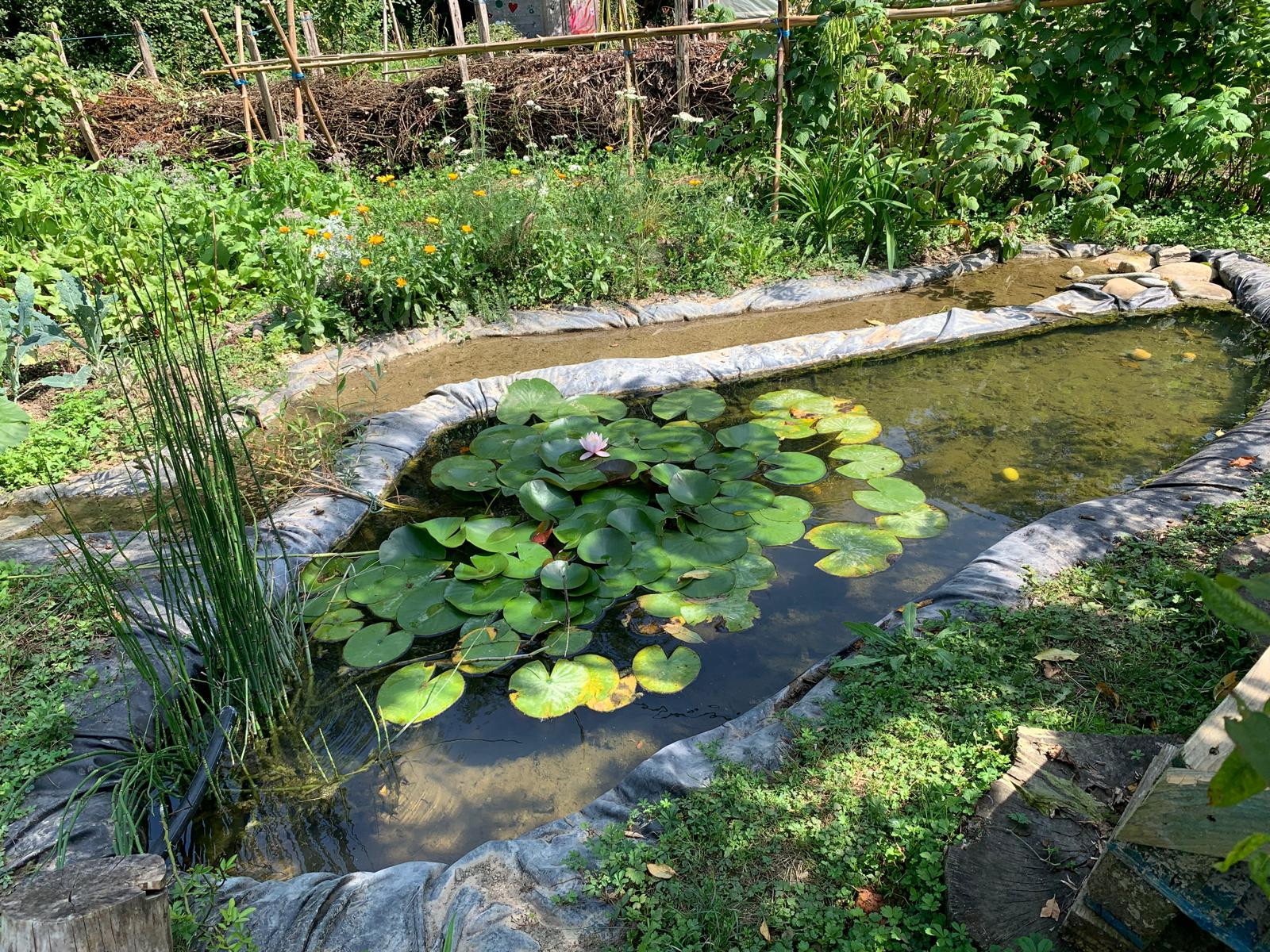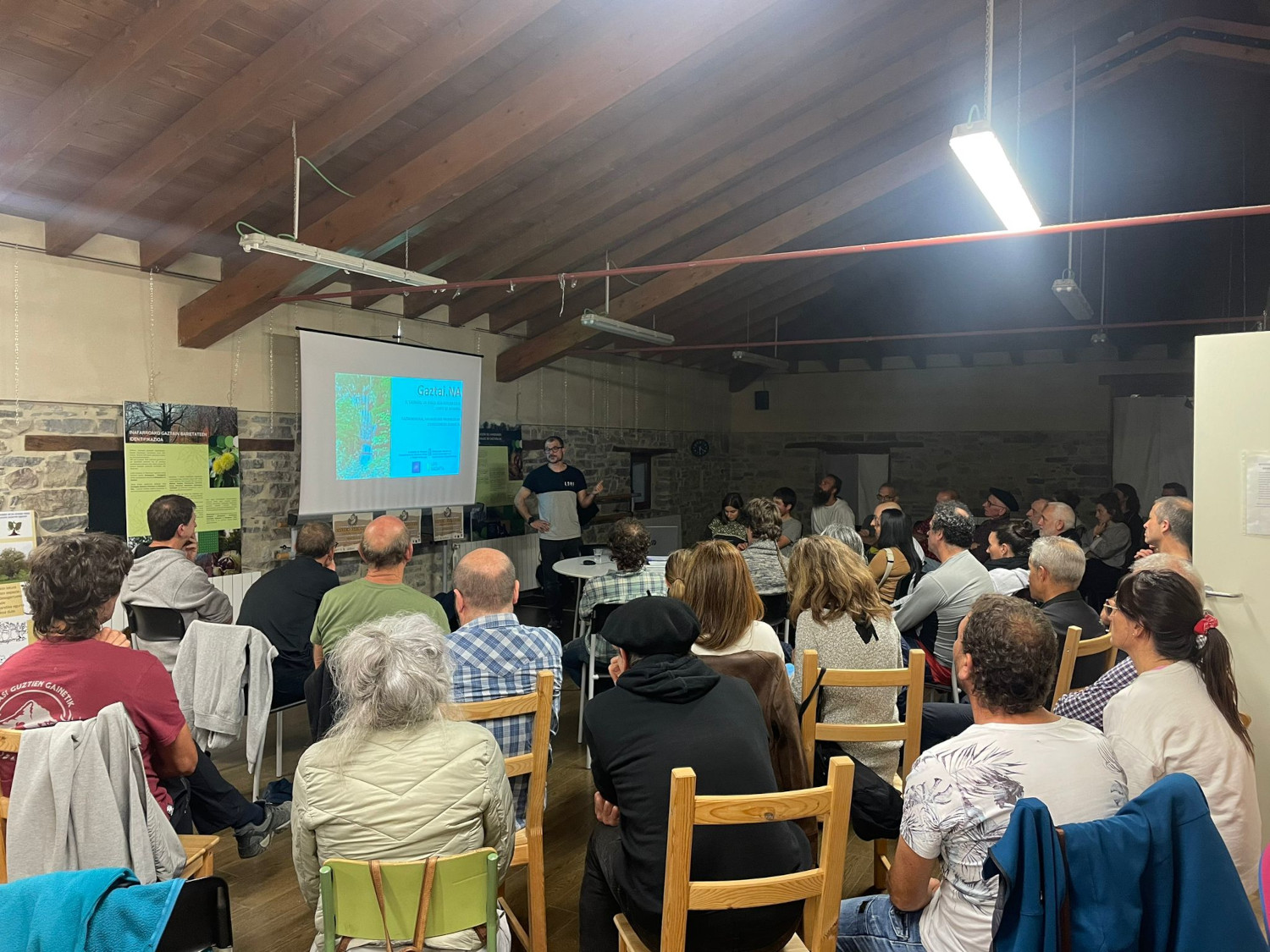The Vitoria-Gasteiz food network transformation tool
- In the post-pandemic context, a group in Vitoria-Gasteiz began to move to work on food, which is supposed to be a fundamental right. “Other issues were already being dealt with in the field of militancy, such as housing, but with food as a focus there were no such groups, we had a vacuum,” explains Haizea Agirre, a member of the Herrizoma project. Herrizoma was born with the intention of responding to this vacuum: a project focused on food that is working to "desert" capitalism and patriarchy and to create other models of life and relationships.

The first axis of Herrizoma is that of collective purchases. “We contacted nearby producers to try to eliminate intermediaries to combat the speculation that exists with food,” explains the member. They make purchases in a self-managed and collective way, for which they have established criteria such as being local, ecological –even without a label–, having an ideological affinity with the producers, being a product produced in decent working conditions... “However, we have also been confronted with contradictions, because we want the project to be accessible to everyone and bring people from different backgrounds to the community, so we also wanted it to be cheap”, adds Agirre.
In their quest for balance and in their attempt to combine the local and ecological with the cheap, they came up with a formula: when a product arrived, some members could pay 20% more, others could pay less. “However, it was still expensive and we are currently looking for new structures and opportunities,” he says. In fact, in 2024 they realized that only people with specific purchasing power remained in the project, and after a process of reflection, they also decided to start collecting groceries in supermarkets to collect basic foods and distribute baskets. “That’s where we’re reflecting and questioning things because we want to get away from the healthcare organizations, but the reality is that a lot of people have come in since we’ve made the change, today we have about 40 people in assemblies,” he says.
The communal production
The second axis of the project is that of communal production. From the beginning, the members make a garden in the neighborhood of Errekaleor. “The horticultural project has been a central project since its inception, and there have also been other projects around it: the group of medicinal plants, the conservatory, the brewer of beer, the producer of honey...”, he says. In the monthly main assembly, the tasks to be carried out in the garden, in the collective purchase as well as in the warehouse, are decided and distributed in the following month, covering all the shifts at the moment. Then they take all the fresh produce from the garden to the warehouse in the Old Town. “Anyone in the project can take vegetables from the warehouse, but we don’t take all the members because some even make their own vegetable garden, for example.”
The Galdakao Mutual Support Network has been a model for Herrizoma in Vitoria-Gasteiz, highlighting that its members are getting involved with other groups in the city and other similar projects in the Basque Country. “We were invited to the meeting point of the housing networks and we have begun to shape this together with similar projects in the Southern Basque Country.”
Ubidekoak (Bizkaia) dira Imanol Iturriotz eta Aritz Bengoa gazteak. “Lagunak gara txikitatik, eta beti izan dugu buruan abeltzaintza proiektu bat martxan jartzeko ideia”, azaldu du Iturriotzek. Nekazaritzari lotutako ikasketak izan ez arren, baserri munduarekin eta... [+]
Iruñean bizi ziren Iñaki Zoko Lamarka eta Andoni Arizkuren Eseberri gazteak, baina familiaren herriarekin, Otsagabiarekin, lotura estua zuten biek betidanik. “Lehen, asteburuetan eta udan etortzen ginen eta duela urte batzuk bizitzera etorri ginen”, dio... [+]
Gipuzkoako hamaika txokotatik gerturatutako hamarka lagun elkartu ziren otsailaren 23an Amillubiko lehen auzo(p)lanera. Biolur elkarteak bultzatutako proiektu kolektiboa da Amillubi, agroekologian sakontzeko eta Gipuzkoako etorkizuneko elikadura erronkei heltzeko asmoz Zestoako... [+]
Emakume bakoitzaren errelatotik abiatuta, lurrari eta elikadurari buruzko jakituria kolektibizatu eta sukaldeko iruditegia irauli nahi ditu Ziminttere proiektuak, mahai baten bueltan, sukaldean bertan eta elikagaiak eskutan darabiltzaten bitartean.





















